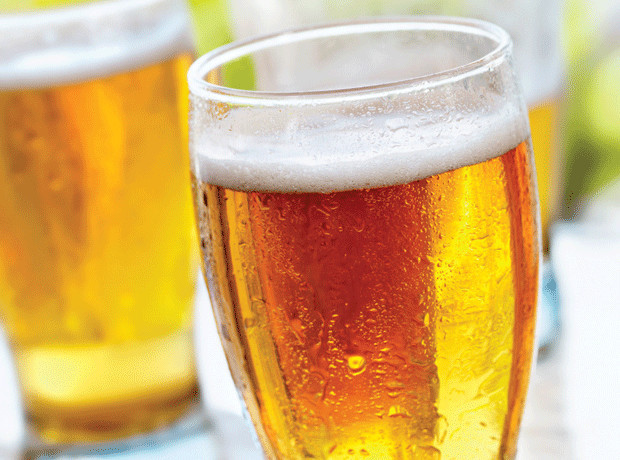
Scotland's alcohol policy fails as death toll rises
In recent years, Scotland has faced a worsening crisis of alcohol-related harm, as the number of deaths linked to alcohol consumption has surged. Despite being the first country in the world to introduce a Minimum Unit Pricing (MUP) policy in 2018, the strategy has not achieved the expected results. Coupled with the Scottish government’s controversial plans to ban alcohol advertising, these initiatives have sparked a heated debate on the effectiveness of policy-driven approaches to reducing alcohol abuse.
Scotland’s MUP, introduced in May 2018, was hailed as a groundbreaking public health measure aimed at reducing alcohol consumption, particularly targeting the availability of cheap, high-strength beverages often associated with problem drinking. The policy set a floor price for alcohol at 50p per unit, a move designed to curb access to excessively cheap alcohol. The logic behind MUP was that higher prices would make harmful drinking less affordable and thus reduce alcohol-related deaths and illnesses.
However, despite these ambitions, alcohol-related deaths in Scotland have been rising at alarming rates. According to the latest figures from the National Records of Scotland (NRS), in 2023, alcohol caused 1,277 deaths in the country, the highest figure since 2008, marking a clear failure of MUP to achieve its intended goals.
The policy’s recent increase to 65p per unit, approved in early 2024, aims to counteract inflation and maintain the pressure on cheap alcohol sales. Yet, the alarming death toll proves that simply increasing prices is not enough to combat alcohol abuse.
Public health experts, including Deputy First Minister Shona Robison, have defended MUP, claiming it has saved lives, prevented hospital admissions and reduced health inequalities.
However, critics argue that there is no substantial evidence that the policy is working as intended. Dr Sandesh Gulhane, the Scottish Conservative health spokesman, voiced concerns that the MUP “punishes responsible drinkers” without delivering on its promise to reduce alcohol-related harm.
One of the most distressing findings is that problem drinkers – those most at risk from alcohol harm – have responded to MUP by skipping meals to prioritise buying alcohol. This behavioural change suggests that the policy has had unintended and potentially deadly consequences for vulnerable groups. Public Health Scotland’s evaluation further highlighted the lack of concrete evidence supporting MUP’s effectiveness in curbing alcohol-related deaths.
Amid the MUP debate, the Scottish government has also set its sights on banning alcohol advertising and promotion, a move that could have sweeping implications for Scotland’s economy and society. Proposed in 2023, this measure seeks to eliminate alcohol sponsorship from sports and cultural events, remove branding from pubs, and relocate alcohol within stores, out of public view. The government argues that restricting alcohol visibility will reduce consumption and mitigate harmful drinking patterns.
However, this proposal has met fierce opposition from the alcohol and retail sectors, with major trade bodies warning that the ban could damage Scotland’s renowned drinks industry and have no meaningful impact on alcohol consumption. The Scottish Alcohol Industry Partnership (SAIP) and other groups argue that responsible marketing does not fuel harmful drinking and that pushing alcohol products to the back of stores or behind opaque barriers will do little to reduce consumption but may increase costs for businesses and consumers.
The cost of implementing these measures has also sparked concern, with smaller retailers estimating a minimum of £15,000 in expenses to comply with the proposed changes, rising to £25,000 or more for larger stores. During a cost-of-living crisis, these added financial burdens could lead to price hikes, further straining household budgets and exacerbating social inequalities.
The Scottish government’s approach to alcohol regulation appears to be based on a belief that raising prices and restricting visibility will address the underlying issues of alcohol abuse. Yet, the rising death toll suggests that these policies fail to tackle the root causes of Scotland’s challenging relationship with alcohol. Alcohol-related harm is deeply entrenched in societal and economic factors, including poverty, mental health issues and access to services, which cannot be effectively addressed through pricing and advertising restrictions alone.
While proponents of MUP and the advertising ban may argue that these measures are necessary to reduce harm, they overlook the complexities of alcohol abuse in Scotland.
Trade associations have rightly pointed out that other targeted interventions – such as better addiction treatment services, education campaigns, and addressing the socioeconomic factors that contribute to problematic drinking – are likely to have a more substantial and lasting impact.
As Scotland moves forward with the implementation of the increased MUP in October 2024 and continues to debate the alcohol advertising ban, the country must reflect on the real-world outcomes of its policies. Rising alcohol-related deaths point to the need for a more comprehensive and evidence-based strategy that goes beyond price controls and visibility restrictions.
To truly address the crisis of alcohol abuse in Scotland, the government must invest in broader public health initiatives that focus on education, support for those struggling with addiction, and tackling the social determinants of health. The MUP and advertising ban alone will not be enough to stem the tide of alcohol-related harm, and without more targeted interventions, Scotland risks seeing further increases in its already devastating death toll.
As the discussions surrounding these policies continue into 2024, it is clear that a more nuanced approach is required – one that balances public health objectives with the economic realities faced by businesses and consumers, while ensuring that the most vulnerable are not left behind.




